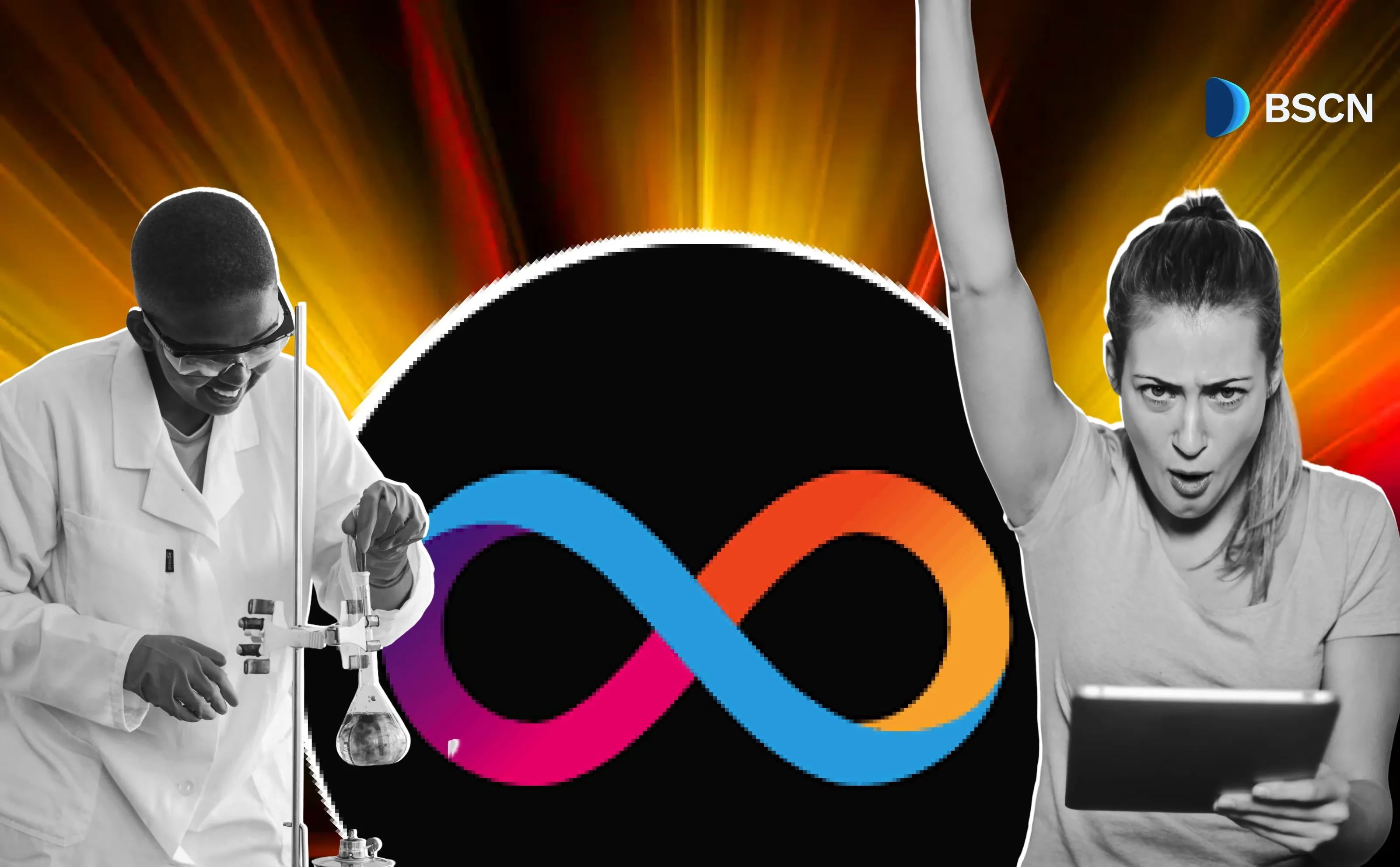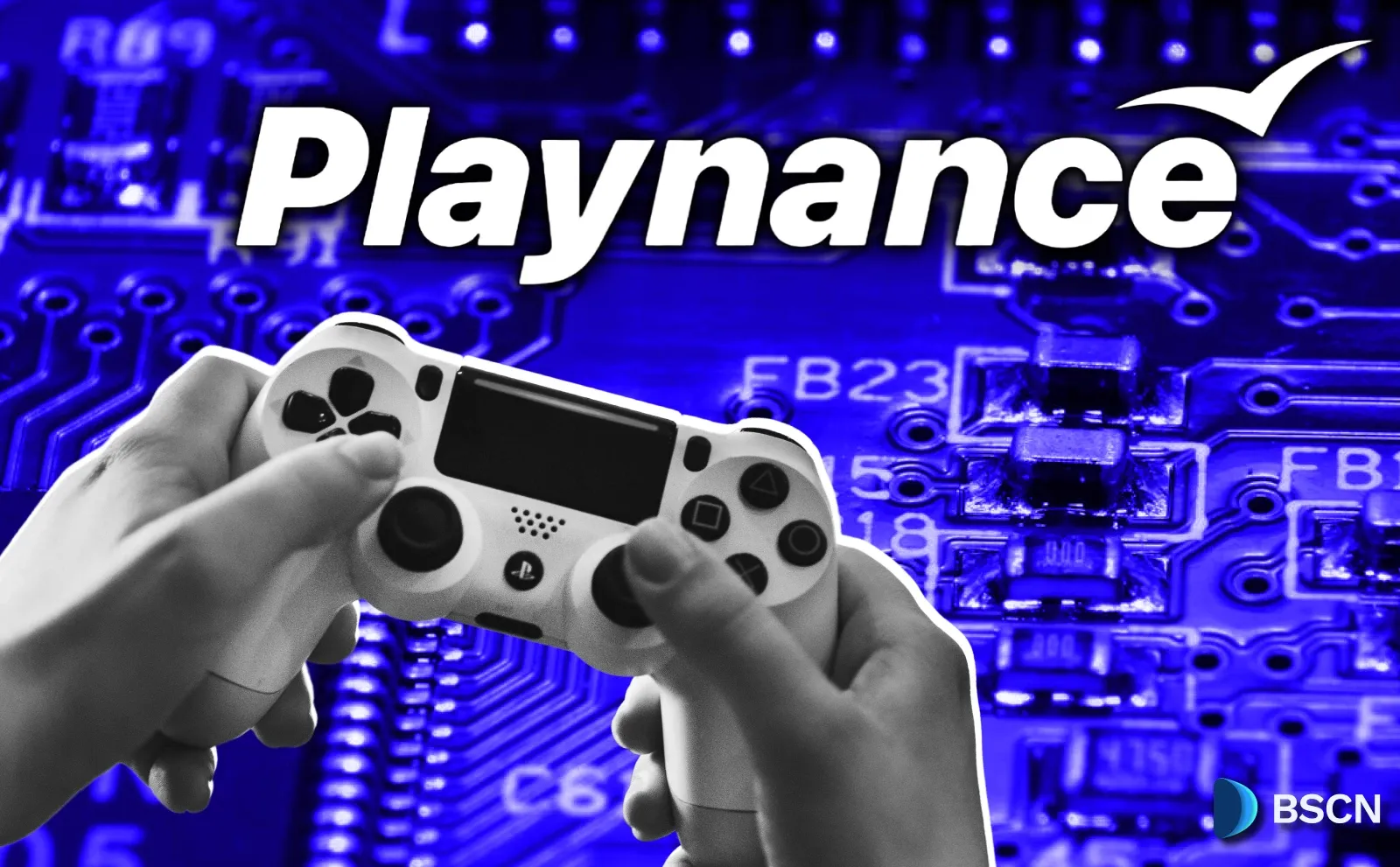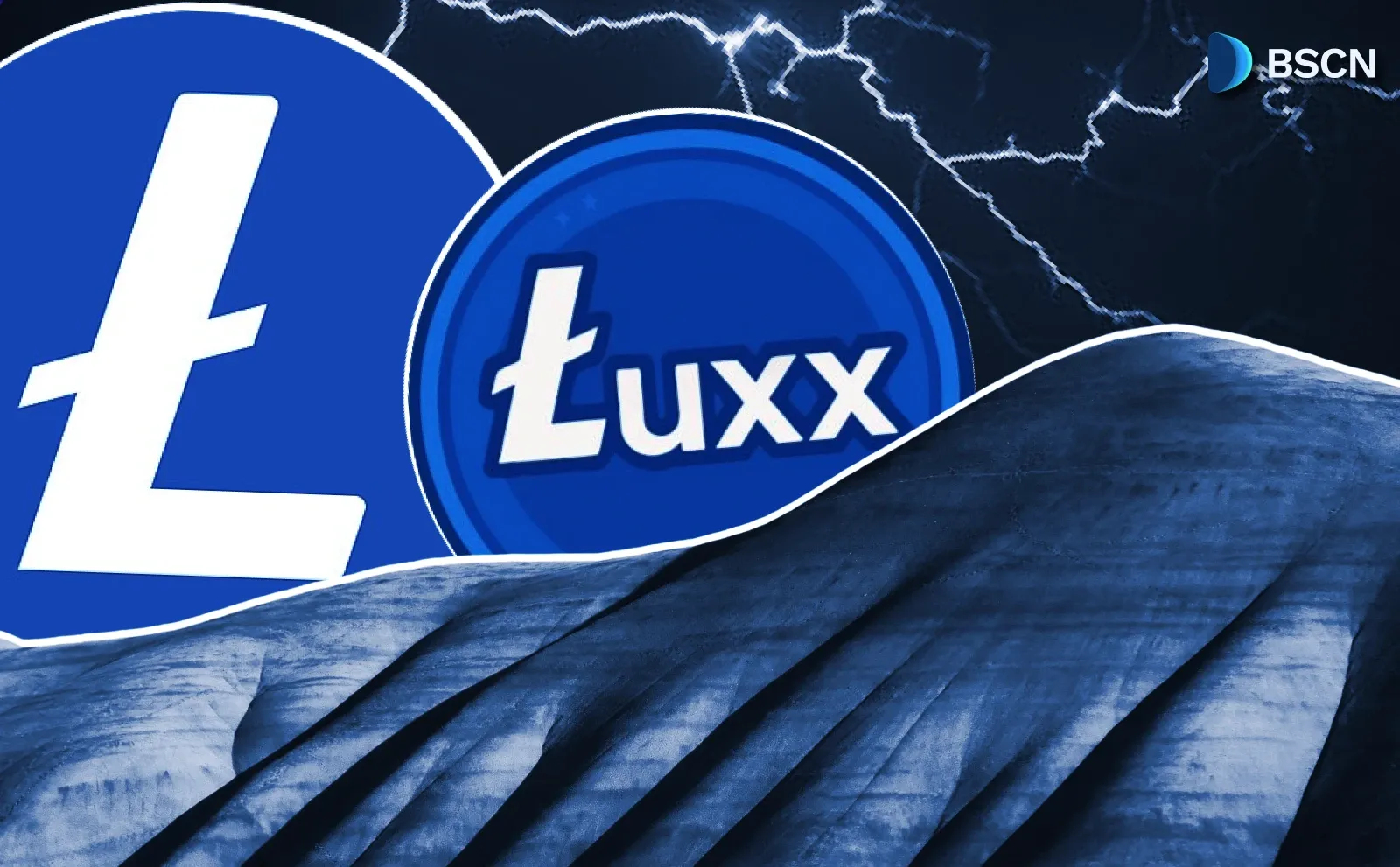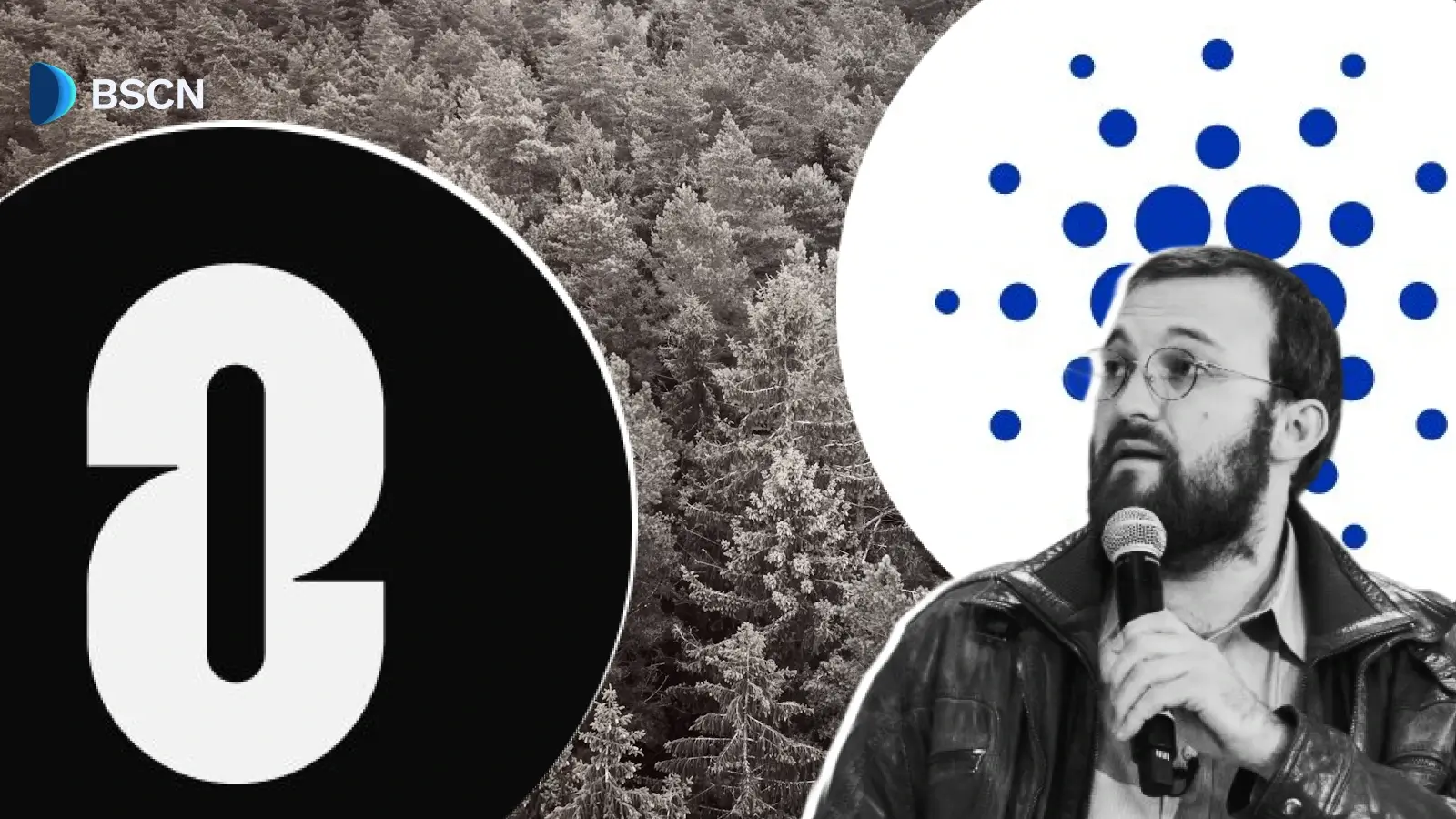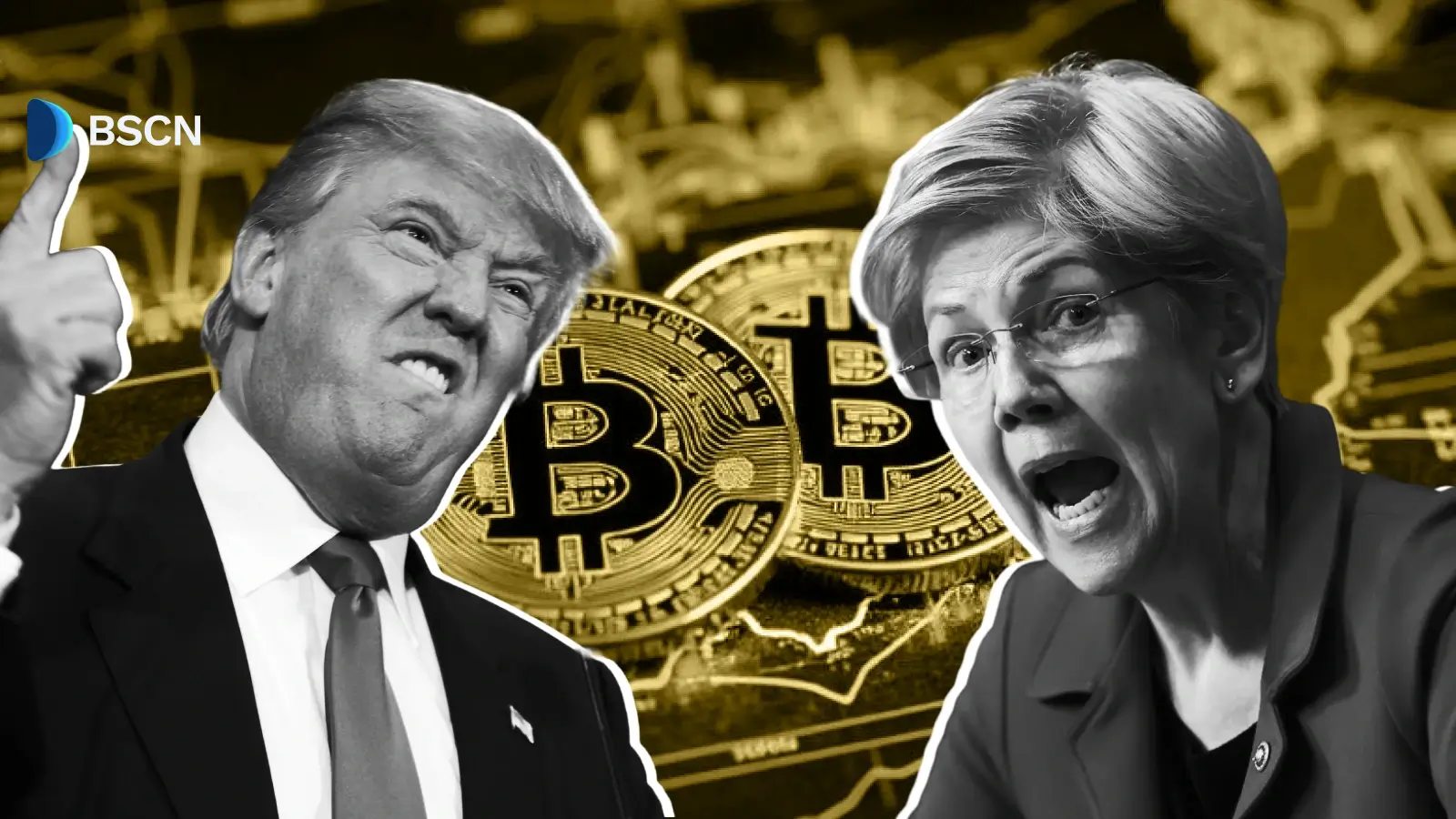Ethereum Founder Vitalik Buterin: In-Depth Profile

Vitalik Buterin is simultaneously one of the most-loved and most-successful people in the world, let alone the cryptocurrency industry. Here’s everything there is to know about him.
Jon Wang
September 3, 2025
Table of Contents
The anonymous and online nature of blockchain and cryptocurrency means that well-known individual heroes (or ‘crypto legends’ are few and far between). However, perhaps at the very top of a list which includes the likes of Binance-founder, ‘CZ’, and Coinbase-founder, Brian Armstrong, is Vitalik Buterin - the founder and creator of Ethereum, the world’s first smart contract network.
Vitalik Buterin is a prodigy in the truest sense of the word, aged only nineteen years old when the Ethereum whitepaper was originally published in 2013, and is now one of crypto’s most successful entrepreneurs.
Here is everything there is to know about the Russian-born crypto superstar…
Vitalik Buterin's Early Life
Vitaly Dmitriyevich "Vitalik" Buterin was born on January 31, 1994, in Kolomna, Russia, to parents Natalia Ameline (a finance professional) and Dmitry Buterin (a computer scientist). When Vitalik was six years old, his family emigrated to Canada seeking better employment opportunities.
From an early age, Vitalik displayed exceptional intellectual abilities. In his early years, one of his favorite activities was using Microsoft Excel to create "The Encyclopedia of Bunnies," a mathematical universe governed by strict formulas. In third grade, he was placed in a gifted children's program where he excelled in mathematics, programming, and economics, demonstrating the ability to add three-digit numbers mentally at twice the speed of his peers.
Vitalik attended the Abelard School, a private high school in Toronto, which he later described as "among the most interesting and productive years of my life." The school's emphasis on intellectual inquiry and close teacher-student relationships fostered his love of learning.
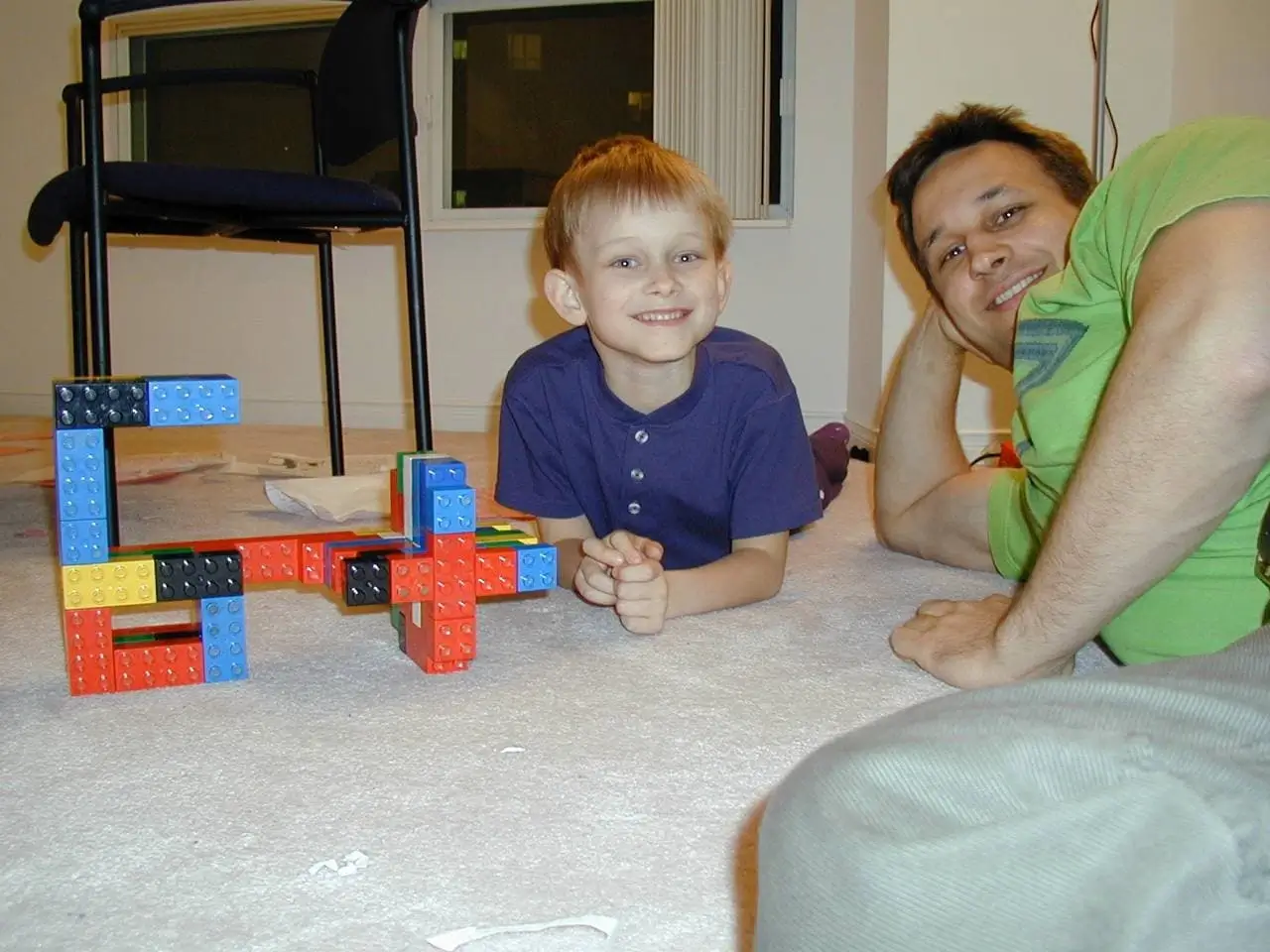
A pivotal moment came when Vitalik was playing World of Warcraft. When Blizzard removed the damage component from his warlock character's Siphon Life spell in patch 3.1.0, he realized "what horrors centralized services can bring" and decided to quit the game. This experience would later influence his passion for decentralization.
At age 17, his father introduced him to Bitcoin. Initially skeptical, Vitalik became fascinated with the technology. Unable to afford Bitcoin or mining equipment, he began writing articles about cryptocurrency, earning five bitcoins per article. This writing experience led him to co-found Bitcoin Magazine with Mihai Alisie in 2011.
Vitalik enrolled at the University of Waterloo, where he took advanced courses and worked as a research assistant for cryptographer Ian Goldberg. In 2012, he won a bronze medal at the International Olympiad in Informatics. However, his university career was cut short in 2014 when he received a $100,000 Thiel Fellowship grant to work on Ethereum full-time.
The Creation of Ethereum
The creation of Ethereum emerged from Vitalik's recognition of Bitcoin's limitations. Through his work at Bitcoin Magazine and travels around the world visiting Bitcoin developers, he observed attempts to expand Bitcoin's functionality through complicated layers. Instead, he envisioned building an entirely new platform.
In 2013, Vitalik briefly worked on the Colored Coins project with eToro CEO Yoni Assia, but when consensus couldn't be reached, he proposed developing a new platform with a Turing-complete programming language. After returning to Toronto from his travels, he published the Ethereum whitepaper in November 2013.
The whitepaper proposed a revolutionary concept: a decentralized platform enabling the creation of virtually any application on the blockchain. Unlike Bitcoin, which was limited to financial transactions, Ethereum would allow smart contracts—self-executing agreements coded directly into the blockchain.
The Ethereum whitepaper circulated widely, generating significant interest. Vitalik publicly announced Ethereum at the North American Bitcoin Conference in Miami on January 26, 2014, delivering a 25-minute speech describing it as a "general-purpose global computer operating on a decentralized permissionless network."
Ethereum had an unusually large founding team. As Anthony Di Iorio wrote: "Ethereum was founded by Vitalik Buterin, Myself, Charles Hoskinson, Mihai Alisie & Amir Chetrit (the initial 5) in December 2013. Joseph Lubin, Gavin Wood, & Jeffrey Wilcke were added in early 2014 as founders."
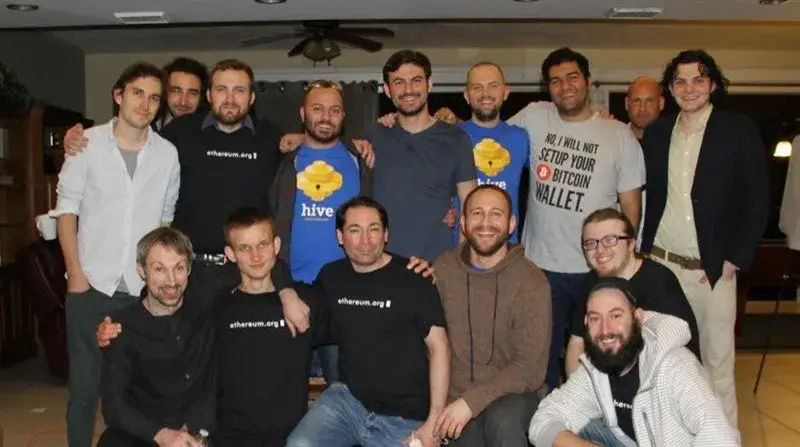
The name "Ethereum" came from Vitalik browsing science fiction elements on Wikipedia. He chose it because it "sounded nice and it had the word 'ether', referring to the hypothetical invisible medium that permeates the universe and allows light to travel."
In early 2014, the team launched a crowdfunding campaign through an initial coin offering (ICO), successfully raising over 31,000 BTC (equivalent to $18 million). After extensive development and testing, Ethereum's first version, called "Frontier," launched on July 30, 2015, introducing smart contracts to the world. And the rest is history…
Why is Vitalik Buterin so Loved?
Vitalik Buterin has achieved legendary status in the cryptocurrency community through a unique combination of intellectual brilliance, authenticity, and moral integrity that sets him apart from other industry figures (naming no names!)
Technical Excellence and Communication: Vitalik's business partner Joseph Lubin described him as "an alien genius who came to this planet to share sacred knowledge." His father notes that "he can take something very, very complicated and explain it clearly," making complex blockchain concepts accessible to both developers and general enthusiasts.
Authentic Humility: Unlike many cryptocurrency figures focused on personal gain, Vitalik consistently demonstrates humility. His father revealed in a 2018 New Yorker article that Vitalik "is trying to focus his time on research. He's not too excited that the community assigns so much importance to him. He wants the community to be more resilient." This desire to decentralize influence rather than maintain control has only increased respect for him.
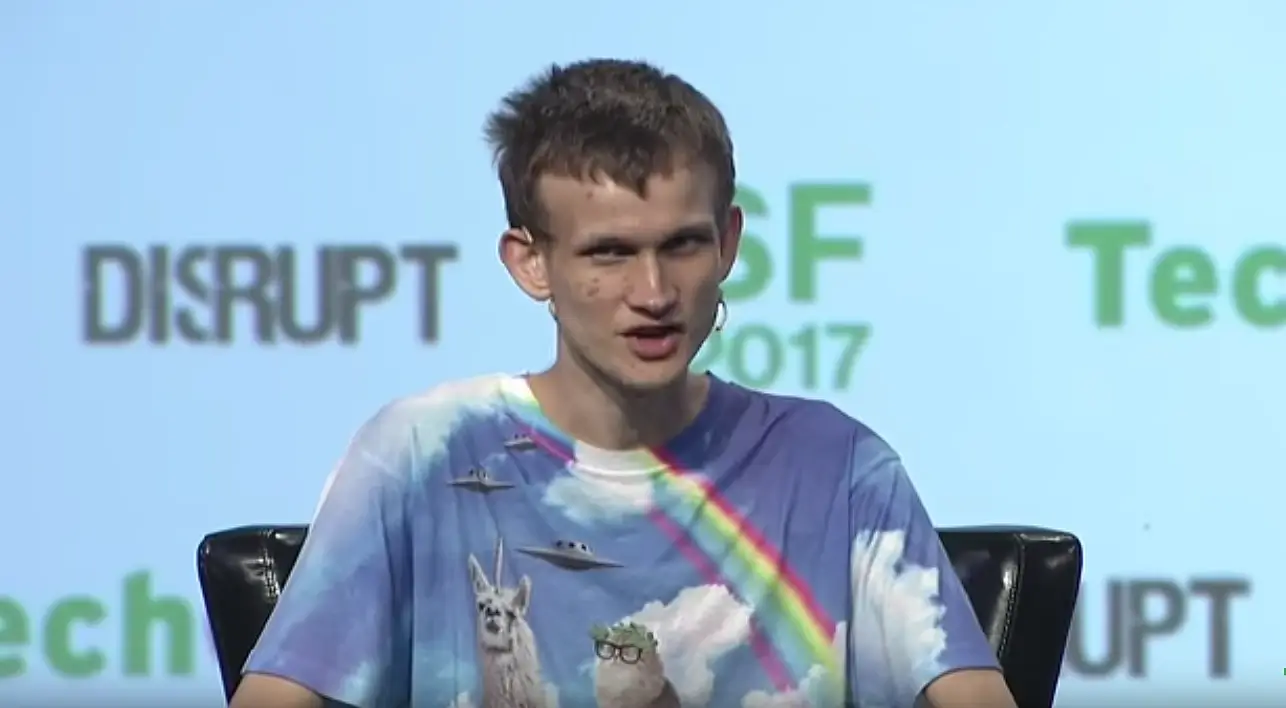
Extraordinary Philanthropy: Vitalik's charitable contributions are remarkable in both scale and thoughtfulness. Notable donations include:
- $665 million to the Future of Life Institute (AI safety research)
- $1.14 billion in SHIBA coins to India's COVID relief fund
- $336 million in Dogelon Mars tokens to the Methuselah Foundation
- $2.4 million to SENS Research Foundation (life extension research)
- $763,970 to Machine Intelligence Research Institute
Political Courage: Vitalik hasn't shied away from taking difficult moral stances. During Russia's invasion of Ukraine, he tweeted "Ethereum is neutral, but I am not," calling the attack a crime against both Ukrainian and Russian peoples. When criticized by Russian state media, he responded with characteristic directness.
Meme Culture and Social Media: Vitalik's presence in crypto meme culture has endeared him to the community. Popular memes portray him as a "crypto wizard" with magical knowledge, or contrast his innovative ideas with traditional finance. He embraces this culture, recently using memes to criticize VC-funded projects with flashy appearances but poor products.
Even when facing criticism, he handles it with humor. When insulted by two major cryptocurrency figures in one day, he tweeted: "People say fun things about me all the time, but I do think this is a bit of a record."
Integrity: Perhaps most importantly, Vitalik consistently advocates for genuine decentralization and uses his wealth for positive impact. He regularly converts unwanted meme coins sent to his wallet into donations for charitable causes, demonstrating his commitment to using his influence responsibly.
How Much is Vitalik Buterin Worth?
Determining Vitalik Buterin's exact net worth is challenging due to cryptocurrency market volatility, but multiple sources provide insights into the Ethereum co-founder's substantial wealth.
Current Estimates: Net worth estimates vary significantly depending on market conditions and methodology. Recent estimates range from $440 million to over $1.46 billion. According to Nansen, as of July 2025, Vitalik's net worth is approximately $1.025 billion, though this fluctuates dramatically with Ethereum's price.
Primary Wealth Source - Ethereum Holdings: The vast majority (approximately 99%) of Vitalik's wealth comes from his Ethereum holdings. He currently holds around 240,000-280,000 ETH tokens across known wallets. In 2018, he claimed never to have held more than 0.9% of ETH's total supply, and blockchain data appears to confirm this assertion.
Historical Volatility: Vitalik's wealth has experienced extreme fluctuations:
- May 2021: Became world's youngest crypto billionaire when ETH hit $3,000
- 2021 peak: Portfolio worth up to $1.5 billion
- December 2022: Net worth dropped to approximately $300 million during bear market
- 2025: Back to billionaire status with ETH recovery
When FTX collapsed and Sam Bankman-Fried's net worth plunged to $1 billion, Vitalik responded on Twitter: "$1b is still much more than I have," providing potential insight into his wealth relative to other crypto figures.
Additional Holdings and Investments: Beyond Ethereum, Vitalik holds smaller amounts of other cryptocurrencies and has made strategic investments in blockchain companies including Tierion, Aztec, and StarkWare. However, exact details of these investments remain undisclosed.
Challenges in Accurate Valuation: Several factors complicate precise net worth calculations:
- Extreme ETH price volatility means his wealth can change by hundreds of thousands of dollars with single-digit price movements
- Possible undisclosed crypto wallets
- Private investment stakes in various companies
- Regular large charitable donations affecting total holdings
Philanthropic Impact: Vitalik's charitable giving significantly impacts his net worth. His donations exceeding $1 billion during various market peaks represent one of cryptocurrency's largest philanthropic commitments, demonstrating his preference for using wealth for positive impact rather than accumulation.
Transparency: Unlike many wealthy individuals, Vitalik maintains relative transparency about his holdings, publicly sharing wallet addresses and regularly discussing his financial philosophy focused on supporting beneficial projects rather than personal enrichment.
Vitalik Buterin's Recent Work and Presence
As Ethereum matures, Vitalik continues shaping blockchain technology's future through technical development and broader philosophical work on decentralized systems.
Current Role and 2025 Vision: Recent Ethereum Foundation restructuring has given Vitalik greater freedom for long-term research. In April 2025, he unveiled ambitious goals including faster transaction finality, enhanced privacy features, and stronger decentralization. His primary focus is making Ethereum's base layer faster and more secure through "single-slot finality," reducing transaction finalization time from 15 minutes to seconds.
Layer 2 Scaling Focus: Central to Vitalik's vision is Layer 2 networks' critical role in scaling Ethereum. He notes that "L2s of 2025 are far from early 2019 experiments: they've reached key decentralization milestones, secure billions of dollars, and currently scale Ethereum's transaction capacity by 17x while dropping fees similarly."
Key to this strategy are "blobs" (EIP-4844), allowing temporary storage of large data packets within blocks. Vitalik emphasized standardized interoperability solutions, including chain-specific addresses enabling seamless movement across the Ethereum ecosystem.
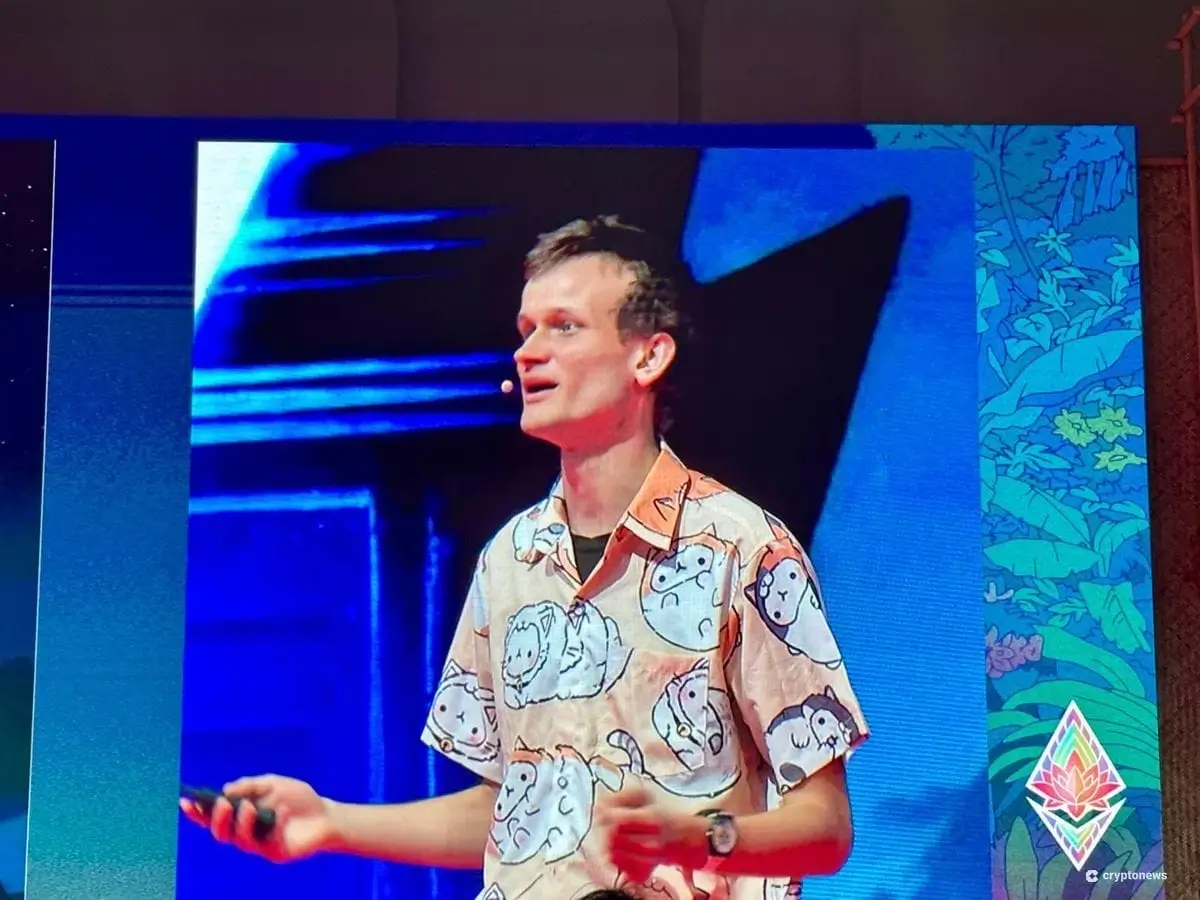
Protocol Simplification Initiative: One of Vitalik's most significant recent proposals involves dramatically simplifying Ethereum's protocol to approach Bitcoin's simplicity while preserving programmability and scalability. He argues that Ethereum's growing technical complexity makes it harder to maintain and onboard new developers.
His radical proposal suggests replacing the Ethereum Virtual Machine (EVM) with RISC-V or another simpler alternative, potentially providing 100x performance improvements while dramatically reducing complexity.
Privacy and Security Enhancements: Vitalik pushes for stronger protection across the entire stack, from smart contracts to wallets. He emphasizes zero-knowledge proofs as essential for user privacy in an environment where governments and corporations increasingly track online behavior.
Broader Vision - Decentralized Accelerationism: Beyond technical upgrades, Vitalik advocates "decentralized accelerationism" (d/acc)—keeping technological power in users' and communities' hands rather than corporations. This includes building decentralized communication tools, improved governance systems, and new funding models for public goods.
His interests extend to cryptography, open-source operating systems, and bio-defense—areas where blockchain technology could enhance system security and transparency.
Environmental and User Experience Commitments: Vitalik's roadmap emphasizes sustainability commitments and user experience improvements. Plans include Ethereum 2.5 upgrades focused on wallet interoperability and transaction finality, plus EVM 2.0 offering increased execution efficiency and advanced debugging tools.
Long-term Governance Vision: Maintaining decentralized governance remains central to Vitalik's vision. He outlined plans for on-chain governance mechanisms enabling token holders to participate more directly in protocol upgrades and decision-making, ensuring Ethereum remains truly decentralized rather than controlled by any single entity.
Research Areas and Future Focus: While not directly involved in all development areas, Vitalik highlights important ongoing work in consensus design, peer-to-peer networking, and Layer 2 hardware solutions. He particularly emphasizes Danksharding and zkEVM developments, central to Ethereum's scalability roadmap with potential 2026 throughput increases.
Vitalik's current work represents a mature understanding of blockchain challenges and pragmatic solutions. His focus has evolved from purely technical concerns to encompass broader questions about how decentralized systems can serve humanity while maintaining core values of openness, security, and resistance to centralized control.
Final Thoughts: The Best that Crypto Has to Offer
On the above examination, it’s easy to see why Vitalik Buterin is heralded as a champion of cryptocurrency and blockchain technology.
Aside from his obvious achievement in being the overarching founder of the world’s best smart contract network, Buterin has demonstrated upstanding moral character time and time again. His donations are vast, and his commitment to blockchain’s true mission of decentralization is unwavering.
In an industry dominated by ego and greed, Buterin’s personality has shone through. This is why, despite his vast wealth, he is almost impossible to dislike.
What’s more, and unlike many crypto entrepreneurs, Buterin continues to play an active role in the project that he has built, steering Ethereum development in the present day and doing his utmost to drive the network toward an even more successful future.
Sources:
- Vitalik Buterin’s Wikipedia page
- The Early Years of Vitalik Buterin, Yahir Alban
- Vitalik I Know: Dmitry Buterin, ProgKids
- The Ethereum Whitepaper
- Nansen’s estimates of Vitalik Buterin’s net worth
- Celebrity Net Worth: Vitalik Buterin
- Vitalik Buterin net worth 2025, Marketplace Fairness
- CCN: Vitalik Buterin Net Worth Explained
- CoinDesk: Vitalik Buterin Proposes Replacing EVM with RISC-V
- EtherWorld
- CCN: Vitalik Buterin Maps Out Ethereum’s Goals For 2025
Read Next...
Frequently Asked Questions
How old is Vitalik Buterin?
Vitalik Buterin was born on January 31st, 1994, making him 31-years-old at time of writing in September 2025. He was only 19-years-old when the Ethereum whitepaper was first published and 21-years-old when the Ethereum network officially launched.
How Rich is Vitalik Buterin?
Vitalik Buterin’s wealth is notoriously difficult to estimate, mostly due to dramatic fluctuations in cryptocurrency prices. Many sources place his net worth well above the $1 billion mark. However, some suggest his wealth fell to just a few hundred million during historical bear market periods. One thing is for certain, however - Creating the world’s most successful smart contract blockchain certainly has its perks.
Did Vitalik Buterin go to university or college?
After high school, Vitalik Buterin attended the University of Waterloo in Ontario, Canada. However, he dropped out of education in 2014 when he was offered a $100,000 grant which enabled him to work full-time on Ethereum itself.
Disclaimer
Disclaimer: The views expressed in this article do not necessarily represent the views of BSCN. The information provided in this article is for educational and entertainment purposes only and should not be construed as investment advice, or advice of any kind. BSCN assumes no responsibility for any investment decisions made based on the information provided in this article. If you believe that the article should be amended, please reach out to the BSCN team by emailing [email protected].
Author
 Jon Wang
Jon WangJon studied Philosophy at the University of Cambridge and has been researching cryptocurrency full-time since 2019. He started his career managing channels and creating content for Coin Bureau, before transitioning to investment research for venture capital funds, specializing in early-stage crypto investments. Jon has served on the committee for the Blockchain Society at the University of Cambridge and has studied nearly all areas of the blockchain industry, from early stage investments and altcoins, through to the macroeconomic factors influencing the sector.
Crypto Project & Token Reviews
Project & Token Reviews
Comprehensive reviews of crypto's most interesting projects and assets
Learn about the hottest projects & tokens
Latest Crypto News
Get up to date with the latest crypto news stories and events








